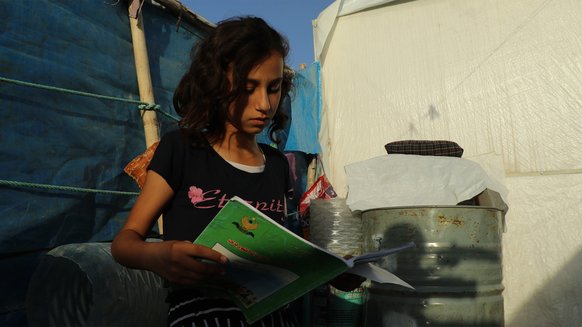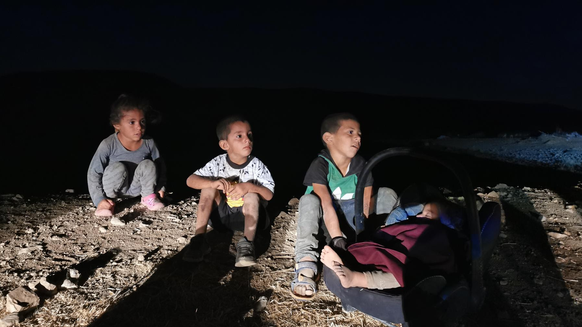Two Steps Back - The Lasting Impact of Uganda’s COVID-19 Lockdown
July 29, 2021
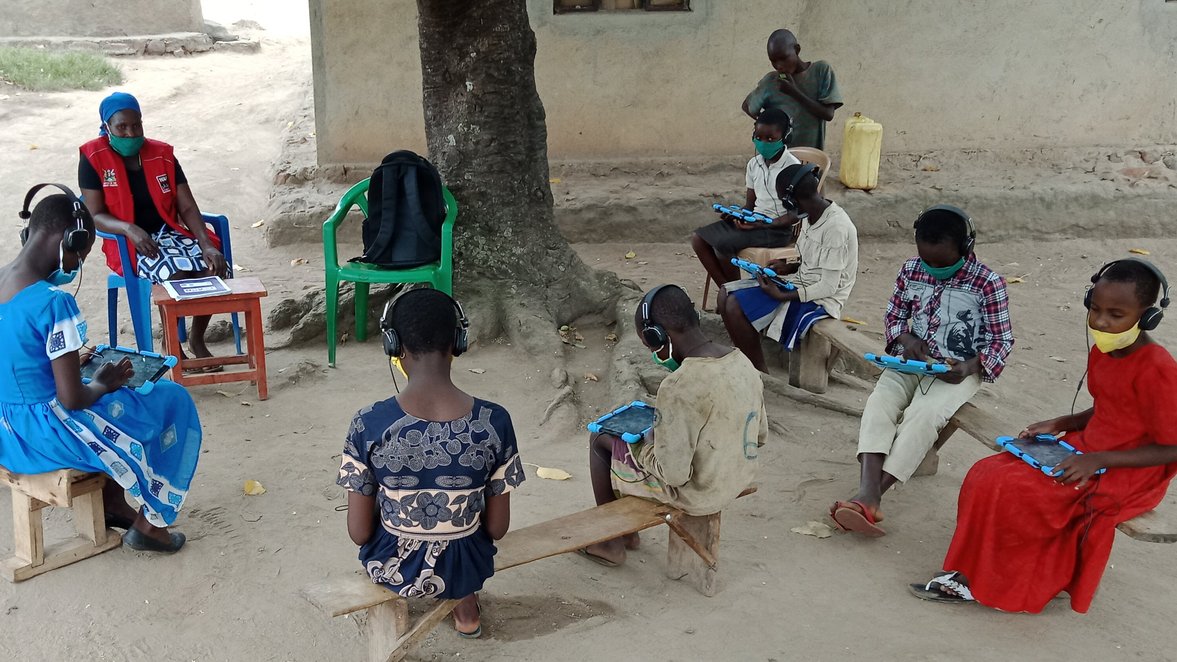
42-Day Lockdown
Mid-June, coronavirus infections got so bad that Uganda’s government took the decision to reimpose a 42-day lockdown.
All schools and higher education institutions have been closed for nearly two months and all public transport - buses, taxis, boda bodas - have been suspended until at least this Friday (30 June). The impact on our activities has been extensive with War Child forced to reduce its staff in office to 10 per cent.
Toll on Children’s Mental Health
In the Navikale and Oruchinga refugee settlements, where our team lead Daniel Osako works, the surge in COVID-19 cases and resulting restrictions on movement have also taken their toll on children’s mental health and wellbeing.
“Separated from their friends and lacking reliable information on the outbreak, naturally children are directing their questions to their parents or caregivers”, says Osako. “Parents - many of whom have lost their jobs - see it as a failure on their part that they can’t provide the answers; and these stresses carry over to their children... It’s a vicious cycle”.
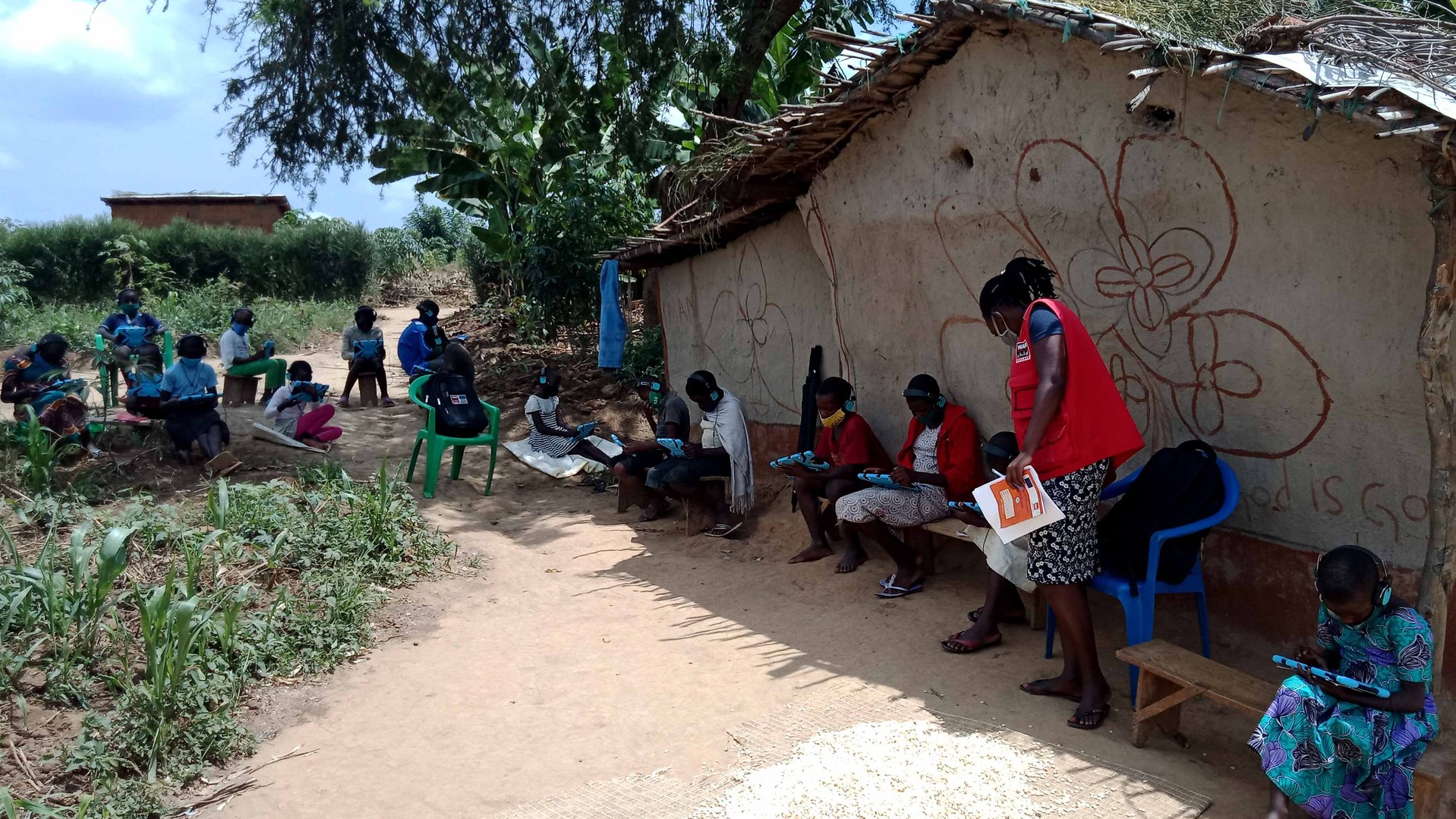
Daniel Osako: “Parents' and caregivers' stresses carry over to their children. It’s a vicious cycle”.
Photo: War Child
Thinking on Our Feet
To meet these challenges, War Child has, once again, been forced to think on its feet. “Staff on the ground are the real heroes of this story”, says Osako. “The last weeks, my team has been working flat out, driving through settlements with mega phones and leaflets disseminating reliable information on the virus.”
Even our adapted Can’t Wait to Learn programme has suffered setbacks - with teachers and facilitators who rely on public transport suddenly unable to reach families. Osako: “We’ve had to get creative. Facilitators leave the house at 7am and cycle [on War Child provided bicycles] over an hour to the settlements. They check in with families and drop re-charged tablets on the doorstep.”
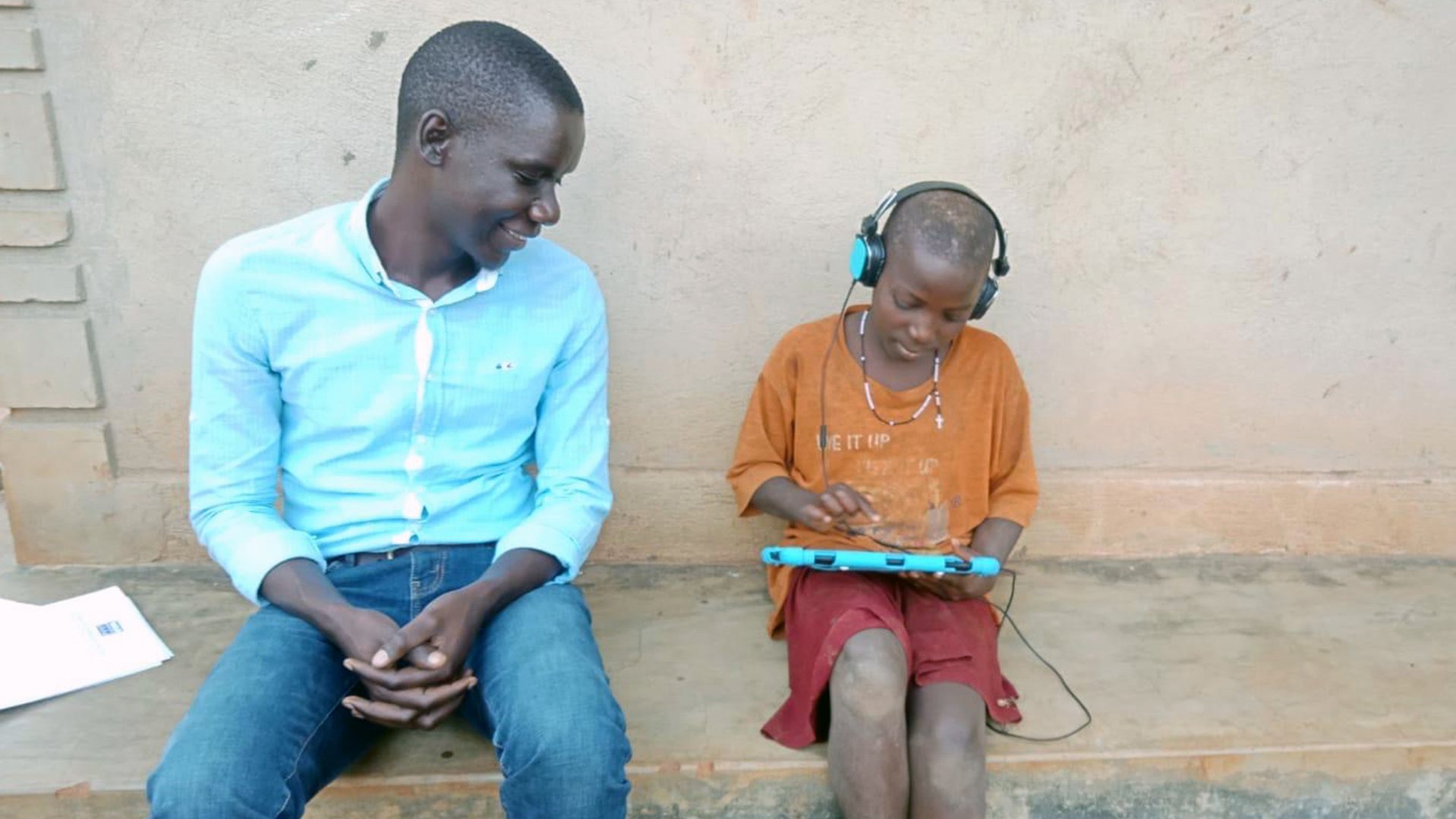
Daniel and his team have been working around the clock to deliver e-learning tablets to children at home
Photo: War Child
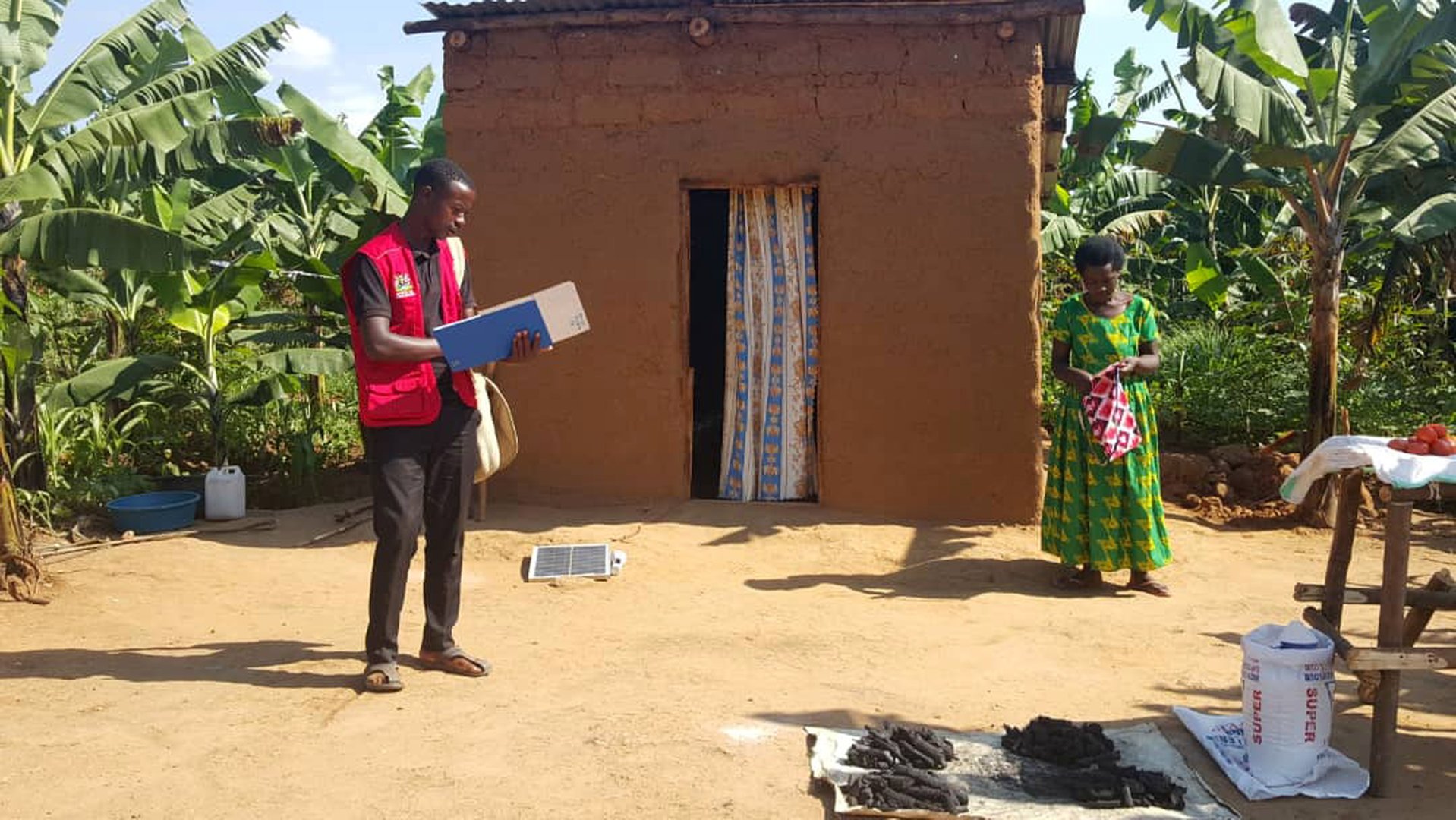
A War Child staff member sensitising communities on the renewed risks of COVID-19
Photo: War Child
The Difficult Road Ahead
As Uganda’s cumulative COVID-19 recoveries hit 78,415 and lockdown nears an end, hope is on the horizon. Yet, Osako fears that aid organisations will have to double their efforts to make up for the significant steps backward.
Take Shadrack (13). Due to the latest lockdown, Shadrack could no longer follow the tablet-based e-learning game at the house of the village chairman’s, causing some of his old problems to resurface. Osako: “Shadrack has become increasingly withdrawn and this has put pressure on his sole caregiver - his grandfather. It’s vulnerable families like these that urgently need our support.”
What else needs to happen for communities to bounce back? “Many households in Uganda don’t have electricity, let alone a radio, so the simple act of awareness-raising is much more powerful than you think”, replies Osako. “On a larger scale, we need to see mass vaccinations take place. In a country of 45 million people, only around 1,058,000 have received their first dose. That needs to change for children affected by conflict and displacement to be spared.”
